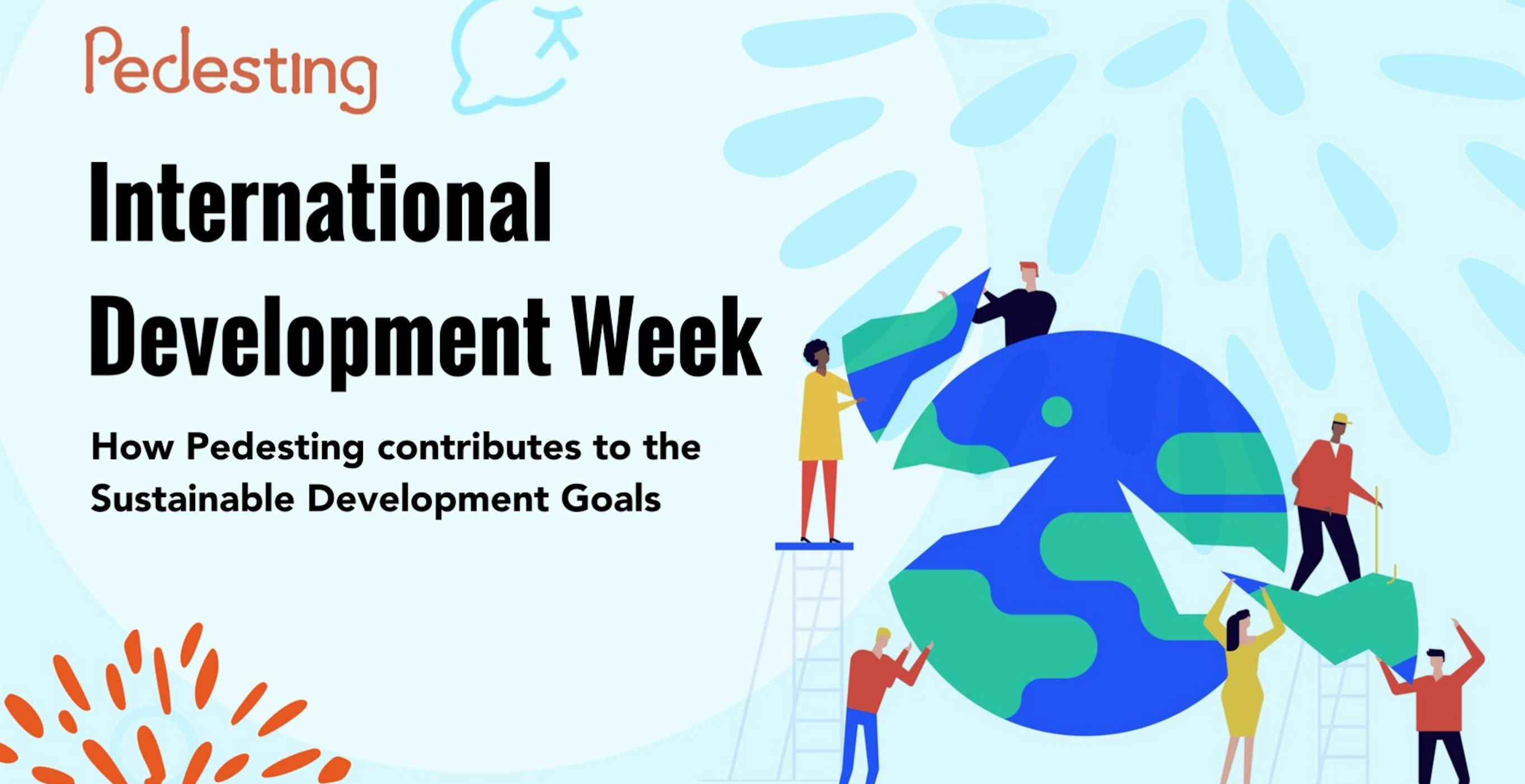
International Development Week Focus: Pedesting’s Contribution to the SDG’s
This International Development Week, we at Pedesting are excited to share how our work supports the global Sustainable Development Goals (SDGs). Through our unique approach, we're helping to create a more inclusive, sustainable world by focusing on goals like decent work and economic growth, reducing inequalities, building sustainable cities, and promoting well-being. Let's dive into how Pedesting is making a difference.
Goal 8: Decent Work and Economic Growth
Pedesting aims to ensure more and more people with disabilities join the workforce by working with big and small office properties thus paving way to a more diverse and inclusive employment program for communities. In its own way Pedesting advocates for accessible workplaces impacting the Inclusion, Diversity, Equity and Accessibility policies of corporates.
Goal 10: Reduced Inequalities
Pedesting through its accessible and safe indoor navigation provides equal opportunities for people with disabilities to explore and access different places and services without facing barriers. Thus, it works to reduce inequalities that arise due to different abilities in people. It ensures dignity and independence to people and reassure that everyone has the right to be treated equally despite the disabilities.
Goal 11: Sustainable Cities and Communities
Accessible routes contribute to creating cities and communities that are more livable and inclusive. People with disabilities can navigate public spaces and transport systems independently, enhancing their overall quality of life. This fosters a sense of belonging and community cohesion.
By promoting accessible transportation options and pedestrian-friendly infrastructure, Pedesting encourages a shift towards more sustainable transportation choices. This can lead to reduced carbon emissions and less dependence on private vehicles, contributing to environmental preservation and a more sustainable urban environment.
By working with the cities, Pedesting can also impact how the urban landscape is designed. By providing valuable data on the way pedestrians and people with disabilities move, it can help city management create more inclusive design processes.
Goal 3: Good Health and Well being:
Pedesting by providing safe and accessible pedestrian routes, creates an option to get to a place which can be reached by walking rather than commuting using a vehicle. Thus, it encourages good practices that impact good health. On the other hand, it has a huge impact on the mental health and well being of persons with disabilities.
People with disabilities face many challenges daily, like physical barriers, negative stereotyping, and reduced access to their communities. In a 2018 study done on, Frequent Mental Distress Among Adults by Disability Status, Disability Type, and Selected Characteristics, it is found that an estimated 17.4 million (32.9%) adults with disabilities experienced frequent mental distress, defined as 14 or more reported mentally unhealthy days in a month. Pedesting helps by providing the opportunity and accessible routes to come out, explore and be a part of the community. Thus, it reduces isolation, stress and ensures people with mobility challenges experience positive interactions and relationships.
In summary, Pedesting's efforts during International Development Week highlight our dedication to the SDGs. By making spaces more accessible, promoting equality, and supporting sustainable living, we're not just imagining a better world—we're actively building it. Join us in our efforts to contribute to a better world. Download the Pedesting app today, share your experiences, and choose a more accessible, equitable way to navigate your surroundings. Your support can drive significant change and inspire others to embrace inclusivity and sustainability.

